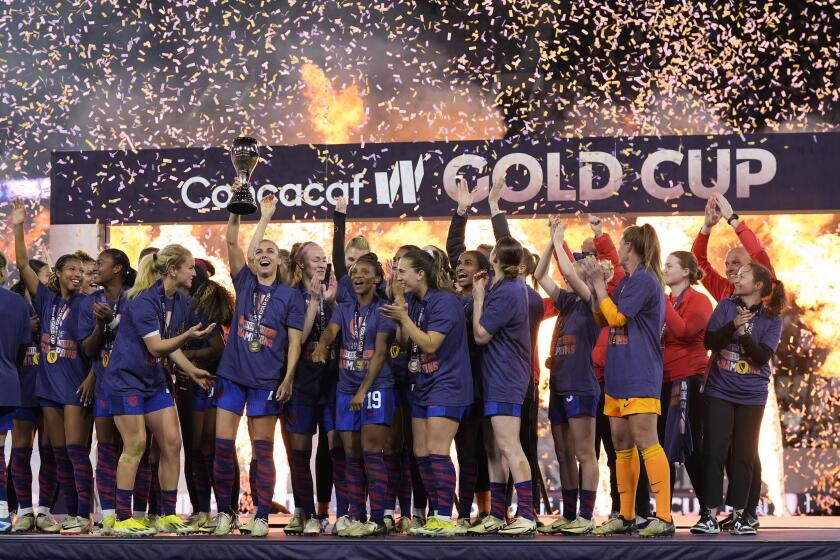Gracing the Games
AS THE 2006 WINTER OLYMPICS draw to a close, Turin is full of losers. That’s not a reference to sulking speedskaters or vapid TV commentators; it’s simple mathematics. About 2,600 athletes competed in the Italian Alps over the last two weeks, and only 252 medals were awarded. Even accounting for the fact that some of those medals went to entire teams, that means a couple thousand athletes will head home empty-handed (or rather, bare-necked) on Sunday.
But not all that glitters is gold, to paraphrase the cliche (and what would sports be without cliches?). One of the lessons of these Olympics is that in sports, if not in life, losers can often be more appealing than winners.
One example from Turin is snowboarder Lindsey Jacobellis, who got so excited when it appeared she would win a gold medal that she crashed and came in second. Normally such misfortune would engender sympathy, or maybe an endorsement deal from one of the lesser theme parks, but details matter. Jacobellis fell, as anyone within eyeshot of a television or computer screen knows, because she tried to do a trick on the next-to-last jump of her race. In the time it took a Swiss snowboarder to pass her, Jacobellis went from a symbol of American exuberance to an example of American hubris.
Not to worry. She still got the silver, and her endorsement deals -- doughnuts and cereal, to name two -- remain. After a few days she had even gained some perspective, saying she was “happy to still come out with a medal after making such a goof.”
Compare that with the sour grapes expressed by hockey player Mike Modano, who complained about having to make his own travel arrangements after the U.S. team was eliminated from medal competition by Finland. Or the refusal of speedskater Chad Hedrick to shake the hand of his teammate, Shani Davis, after Davis won the gold in the 1,000-meter race. (Hedrick and Davis later did shake, if not make up. Can a TV miniseries be far behind?)
There are those who may prefer honest antagonism to the fatalistic satisfaction expressed by so many losers after the competition is over. Winning teams or players, it turns out, almost always had a better day, or had icier nerves, or wanted it more. The German women’s ski team, for example, lost the gold to a Russian team that skied “a perfect race.”
But the choice is not necessarily between empty cliches and angry honesty. Sometimes losers can be both sincere and gracious. For that, the gold medal may go to Sasha Cohen, who lost her chance for a gold medal in figure skating when she fell less than a minute into her final event. Was she disappointed? Of course, she said. But in the larger scheme of things, her program was “four minutes of one day in my life.” Would that we all could lose so well.
More to Read
Go beyond the scoreboard
Get the latest on L.A.'s teams in the daily Sports Report newsletter.
You may occasionally receive promotional content from the Los Angeles Times.




